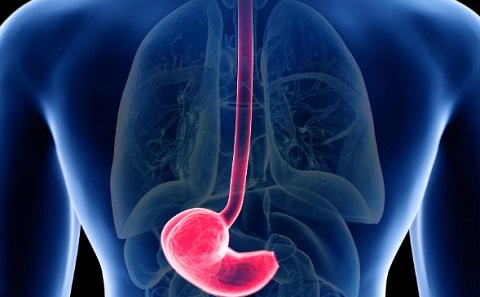Trial supports patient-doctor choice when treating advanced oesophageal cancer

The first trial comparing different treatment combinations for an advanced oesophageal cancer has shown no major differences in patient outcomes, supporting individual treatment decisions between patients and doctors.
The results of the Neo-AEGIS study have been published in The Lancet (Gastroenterology and Hepatology).
Currently, the best combination of treatments for patients with advanced cancer of the oesophagus (food pipe) and the junction of the oesophagus and stomach is unknown.
The Neo-AEGIS study looked at whether giving patients different combinations of chemotherapy before and after surgery worked just as well as chemoradiation before surgery only.
The trial was led by Cancer Trials Ireland and Chief Investigator Professor John Reynolds. It was supported by the Cancer Research UK Southampton Clinical Trials which coordinated the opening of the trial in the UK, giving UK patients access to the trial under Chief Investigator and surgeon Mr Shaun Preston.
A total of 377 patients were recruited into the trial from January 2013 to January 2021 across five countries (199 from the UK).
The results showed very little difference for patients given the combination chemotherapy treatments compared to those on the chemoradiation, with similar 3-year survival and no major differences in operative and health-related quality-of-life outcomes.
Professor Gareth Griffiths, Director of the Southampton Clinical Trials Unit, said:
“We were delighted to be involved in running the international Neo-Aegis trial here in the UK.
"This was the first randomised controlled clinical trial to compare these treatment regimens for patients with advanced cancer the junction of the oesophagus and stomach. The data shows that patients on both treatment regimens have similar outcomes and supports clinician and patient decision making as to which to use in individual cases.”
The trial authors concluded that treatment selection by clinical teams treating these patients should include factors such as patient choice; the logistics of combining chemotherapy, radiotherapy, and surgery, which vary from country to country; and access to immunotherapy treatments which can increase the immune system’s ability to fight the cancer.
The UK-arm of the trial was funded by Cancer Research UK (grant numbers C49462/A18483, CRUK/14/017).
Read the full result publication in The Lancet Gastroenterology and Hepatology.
To find out more about Neo-AEGIS visit the trial webpage.